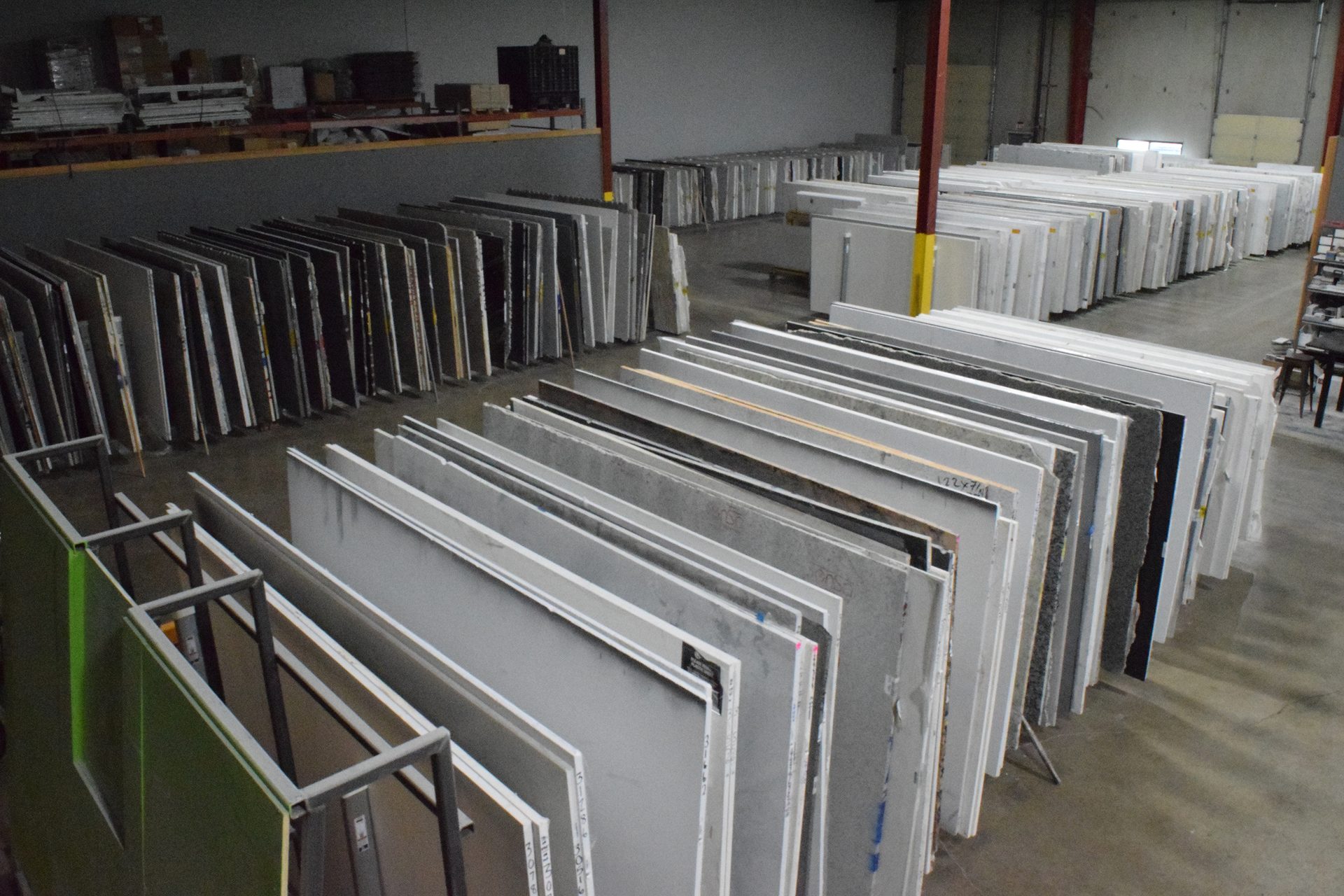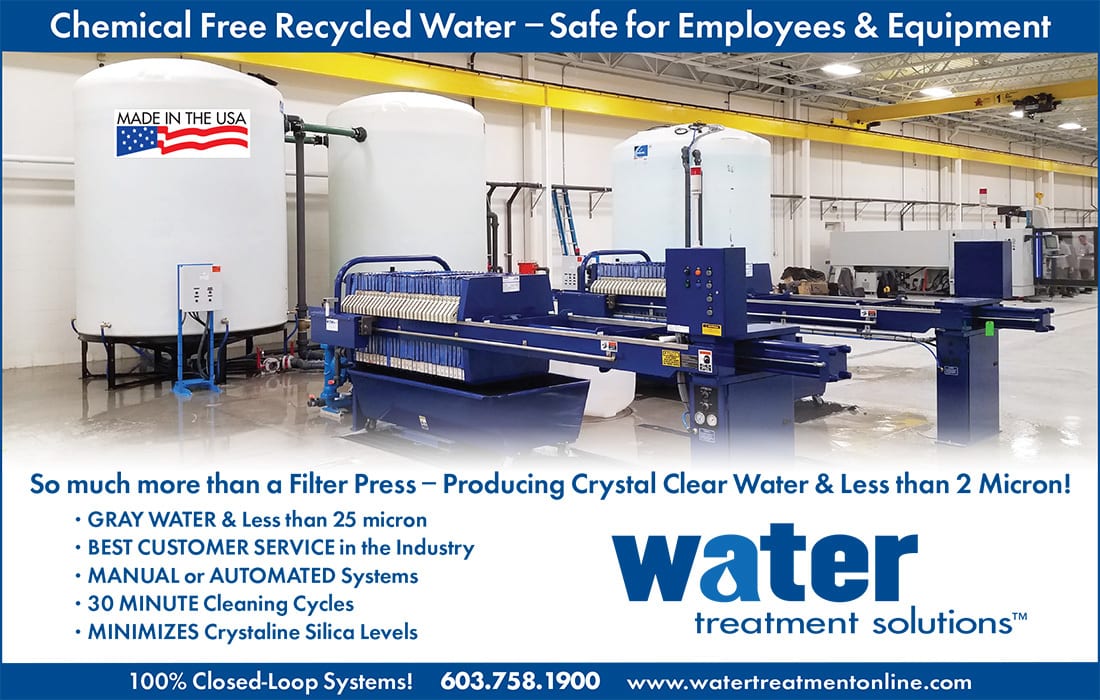JULY 2022
INSIDE THE SHOP
Taking the Leap into Stone Fabrication
A part-time job as a CAD programmer while in college forged a path for one young fabricator to embark on his own journey into the stone industry
by Jennifer Richinelli
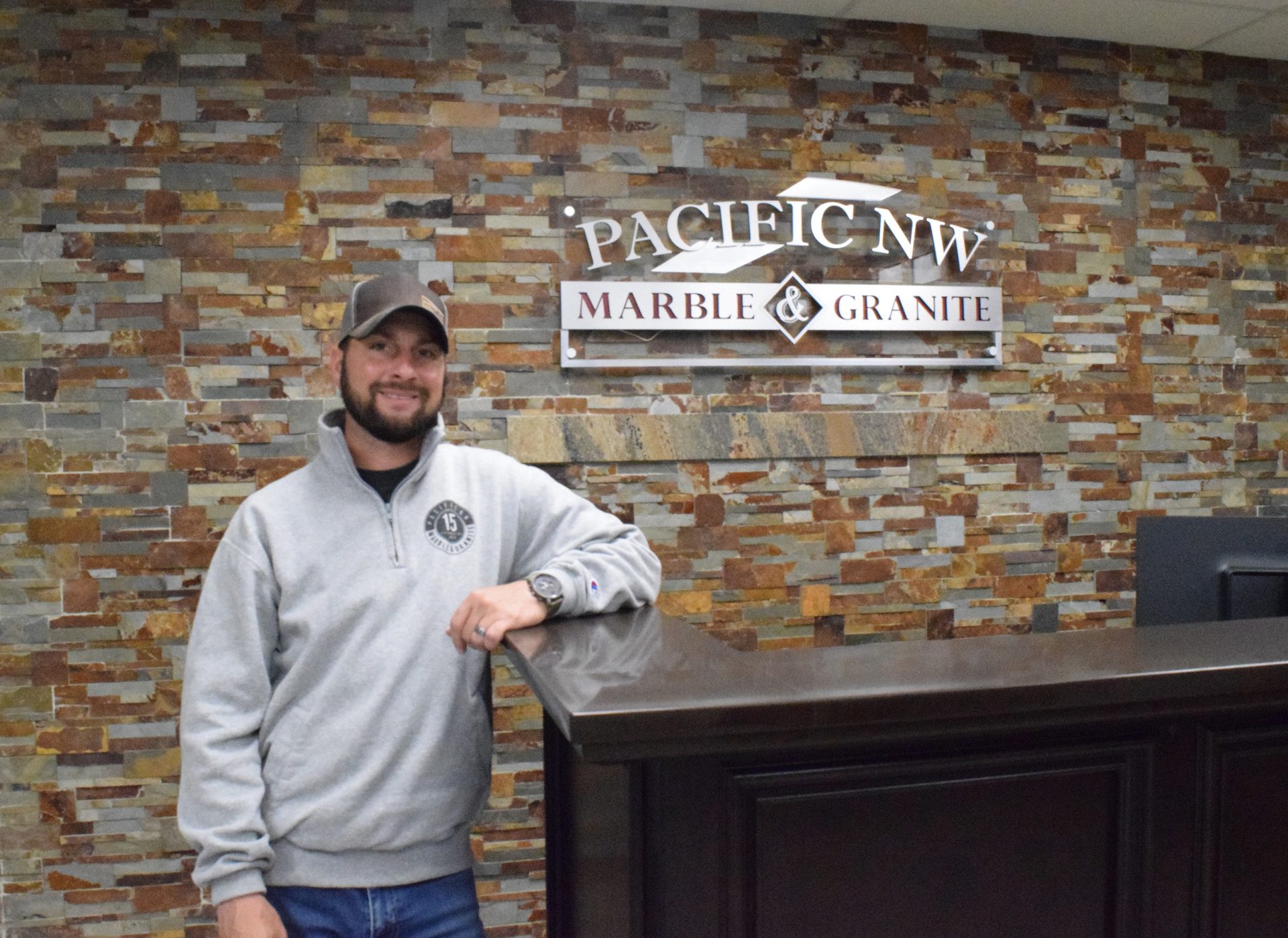
Photos courtesy of Pacific NW Marble & Granite
Greg Holland, owner of Pacific NW Marble & Granite in Hubbard, OR, started his business when he was only 22 years old.
Greg Holland of Pacific NW Marble & Granite in Hubbard, OR, shares with Stone World how he veered off course from his engineering degree and opened his own fabrication shop at an early age. Learn what he has to say about building a business, advice on retaining a loyal and hardworking staff, and what he has learned so far through his experiences working in the stone industry.
SW: I understand you started in the stone fabrication business at a young age. What lead you to get started?
GH: I was working on my engineering degree at Oregon State University when I was offered a part-time job doing CAD programming for a countertop company. I was 19 and the job eventually became full-time. I worked there for a few years, learning the trade and what all was involved. When I was 22, I took the leap to start my own company.
SW: Tell us a little about your journey of growing Pacific NW Marble & Granite into the successful operation it is today?
GH: In 2006, I started out in a 2,500-square-foot shop with four to five employees. Within about five years, we outgrew it and moved into a 12,000-square-foot shop where we managed pretty well for another five years. I was still a manual shop with one bridge saw and doing all stick templates. We are currently in a 40,000-square-foot shop and we do between 2,000 to 2,500 square feet a day with our day and swing shift crews. We currently install around 900 jobs a month. I recently just purchased some land just down the road from my current facility and plan on building a new state-of-the-art 60,000-square-foot shop.
In the beginning, we kept busy with referral work, and then we started working with kitchen and bath dealers. Since then, we have grown into every sector of big box stores, commercial, kitchen and bath dealers, floor covering stores, hospitality and multi-family.

istock / Getty Images Plus / HelenDatsko
SW: What specific machinery do you have?
GH: I enjoy this part. It has been fun designing and implementing new equipment when I can. We have:
- 2021 Sasso K600 Dual Table Saw
- two Sasso K600 Single Table Saws
- Matrix Bridge Saw
- two Northwood CNCs
- Sasso Flying Flat Edge Polisher
- Pristine Environmental Water Filtration System
- 50-Horsepower Air Compressor
- Slabsmith Photo Station
- Proliner Digital Templater
- six LT-55 Digital Templators
- three Forklifts
- Gorbel Overhead Crane
- four Jib Cranes
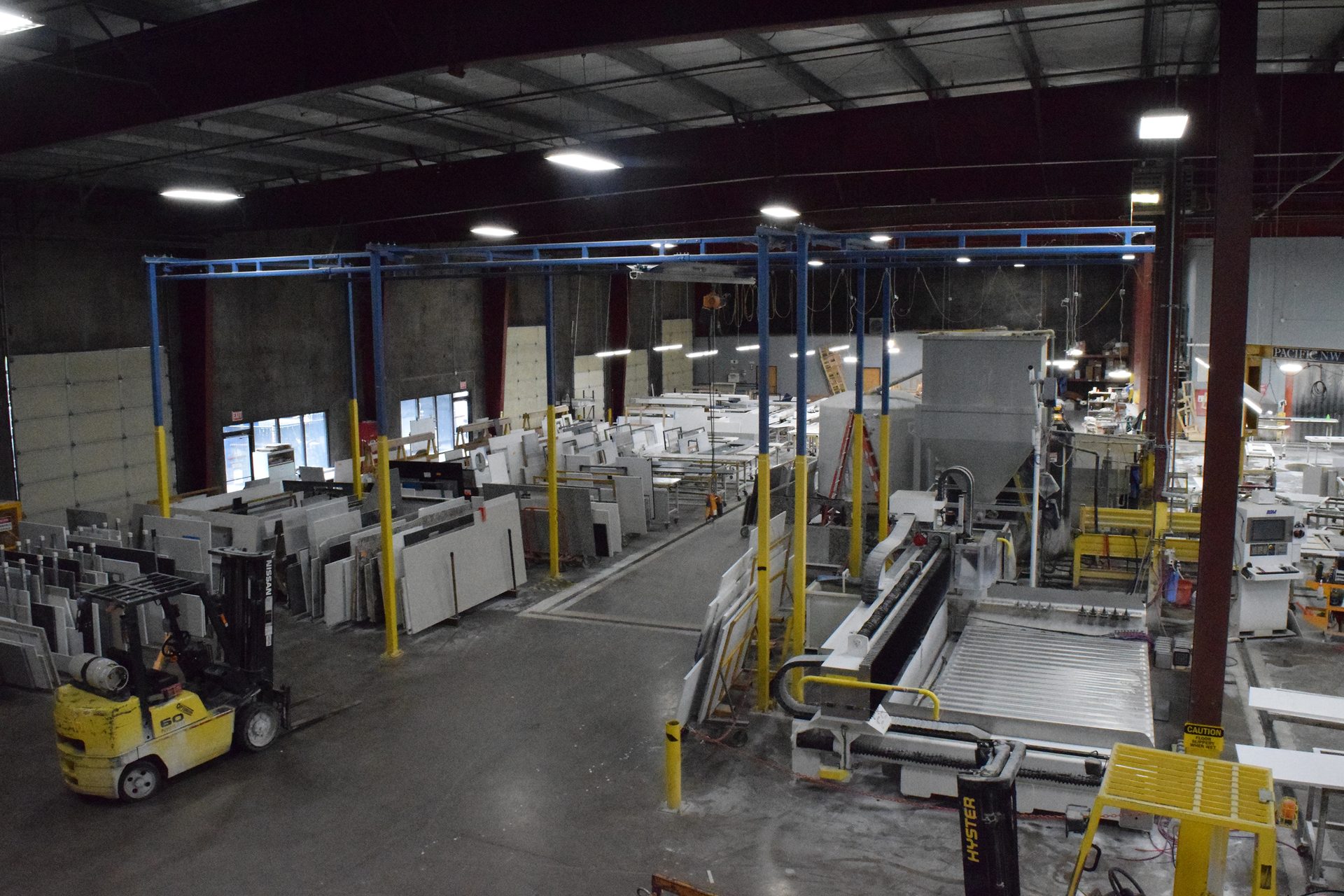
The fabrication operation is currently housed in a 40,000-square-foot space.
SW: In regards to machinery and equipment, what were some considerations to find what was right for your shop?
GH: I purchased Sasso saws primarily due to my great working relationship with the Sasso sales representative. I purchased my first saw from them and had a good experience. With the growth and added saws we needed, that positive experience has continued. In selecting my saws, we wanted a 5-axis fully automated saw to increase production. The same goes for my CNCs. I have heard great things about Northwood, so I purchased my first one. It has turned out to be a great investment so I purchased a second.
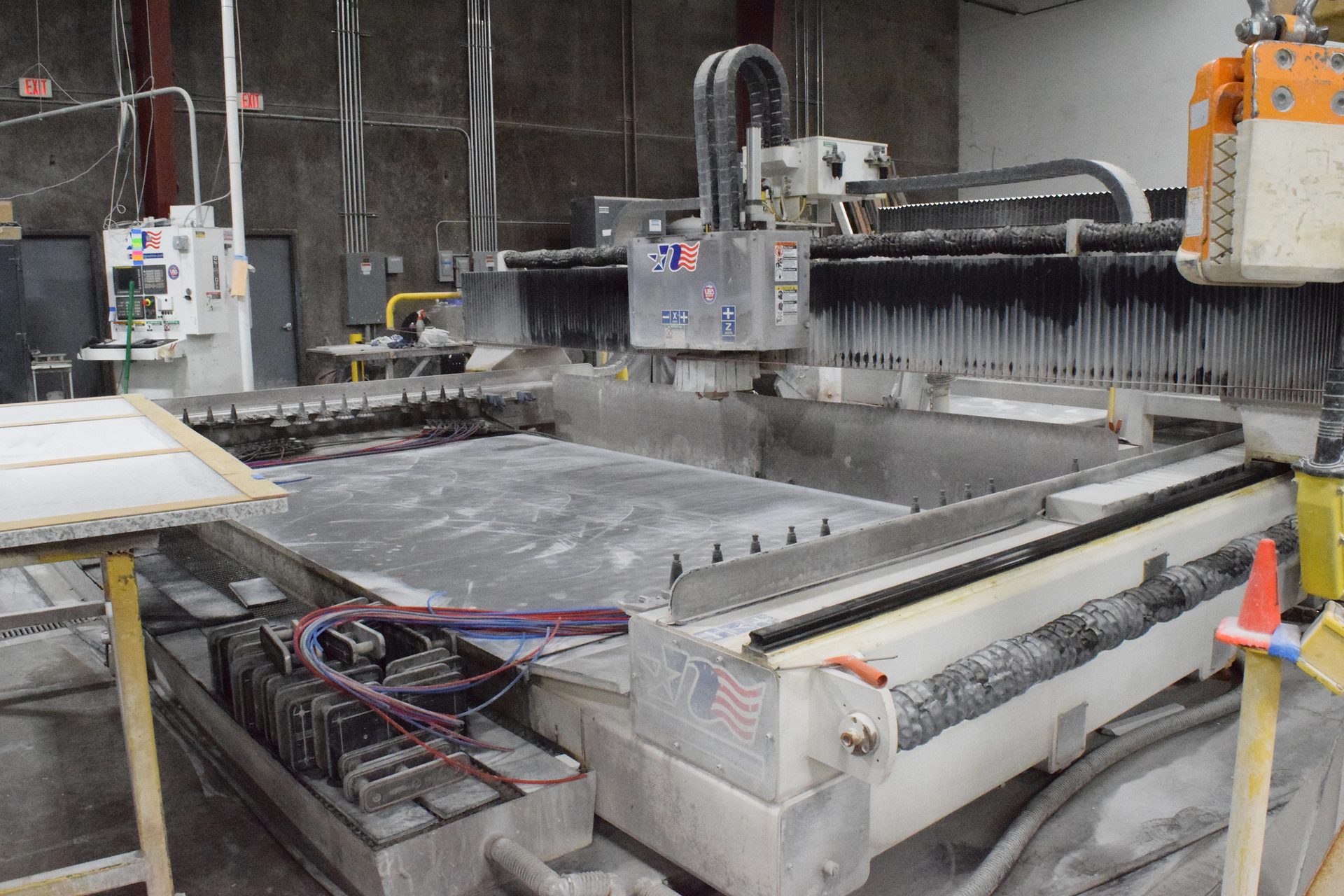
Two Northwood CNC machines are a key component of the production process.
SW: What type of work do you do?
GH: We fabricate and install for big box stores, commercial and residential builders, kitchen and bath dealers, floor covering stores, hospitality and multi-family. In my 15 years, I have learned that the more you diversify the better you can withstand the slow times.
SW: What are your markets?
GH: Our current market covers the entire state of Oregon and Southwest Washington.
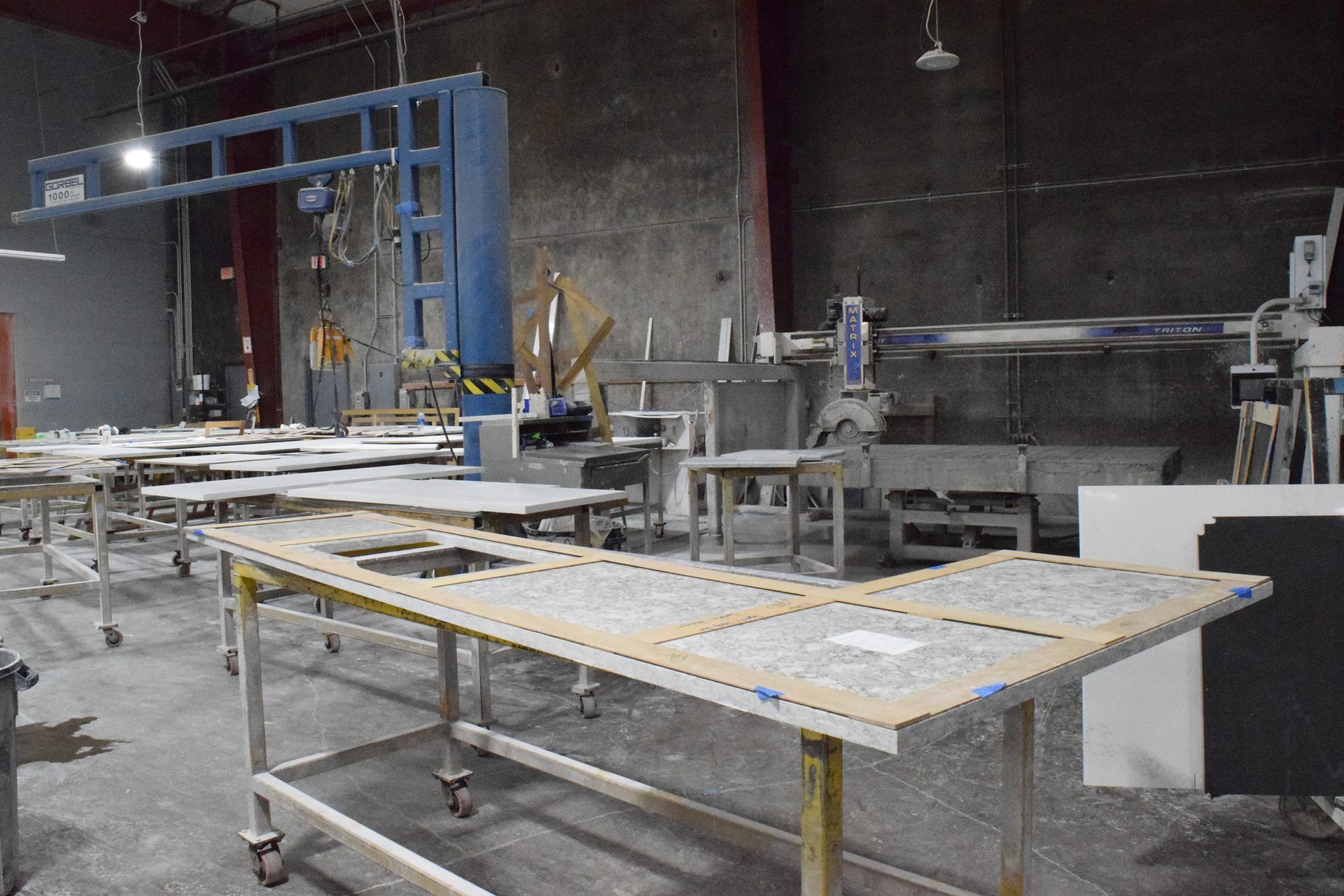
The company outputs approximately 900 jobs on a monthly basis.
SW: How many employees do you have?
GH: 130 currently. We run a day shift and night shift in the shop to keep up with fabrication and polish work. We have 19 install crews, seven template guys, eight salespeople and an office staff to support it all. This is the most important part of the business; without a great team I wouldn’t be where I am today.
SW: Do you find it difficult to find and retain dependable workers?
GH: We never really had an issue getting employees until the last year or so. Much of our staff has been with us for five to 15 years. I still have one of my original employees, which is pretty cool.
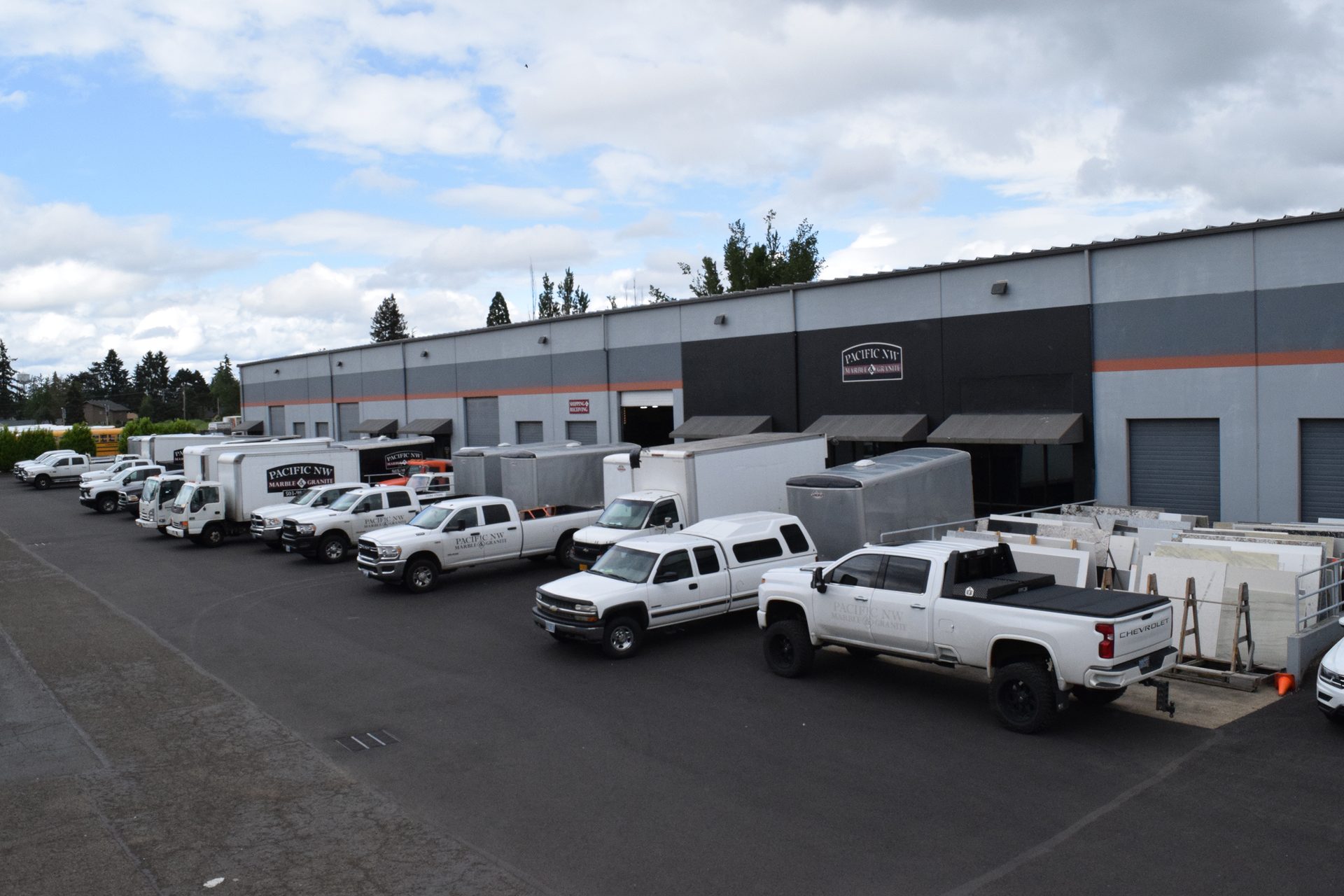
The staff includes 19 install crews.
SW: What are some incentives you offer your employees?
GH: To keep and maintain employees, we offer above competitive wages with medical, dental and vision benefits, company matched 401k and paid vacation.
SW: What advice would you give to other young fabricators starting out?
GH: It is a very competitive industry and difficult to withstand. My advice would be to build strong relationships, reinvest in the business and pay attention to employee morale. The business will not be successful without all three.
SW: Is there anything else you would like to share about your company and/or experience working in the stone industry?
GH: It has been a very tough yet rewarding experience going from a couple kitchens a week shop to where we are today. We are one of the largest shops on the West Coast. This industry is very competitive and in demand. Without my supportive wife and family, and great employees, it would not have been possible.
